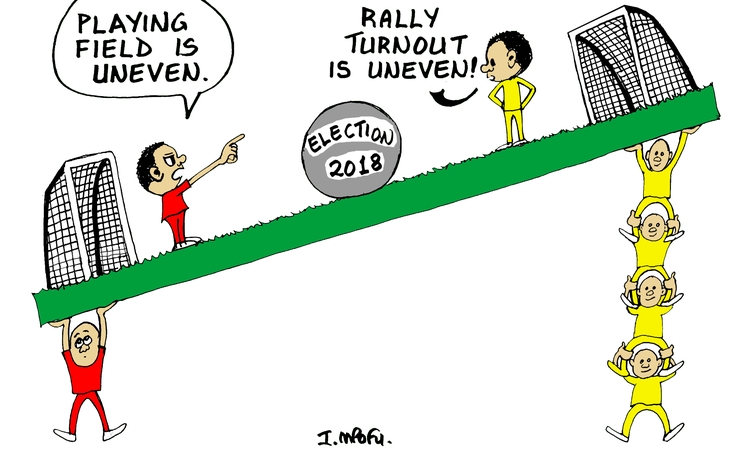Mobile gadgets a tricky maze for schools
Leroy Dzenga Features Writer
Two independent schools were last week forced to issue public statements distancing themselves from unruly behaviour exhibited by their students in internet videos that went viral.
Chisipite Senior School had to apologise after six of its students were captured on video singing an obscene song made popular by Dynamos fans who sit in the Vietnam stand at Rufaro Stadium.
At the same timek, Maranatha Junior School was forced to release a public statement distancing itself from political chants by their students which were, again, captured on video and shared on the internet.
These two incidents brought back into focus conversations about the role of mobile gadgets in and outside the classroom.
Should students be barred from bringing phones to school to avoid public relations headaches associated with these “leaked” vidoes?
The answer to this question will naturally provoke heated arguments, on the morality or otherwise of the students involved.
But what is not debatable id the fact that schools are the biggest losers when inappropriate footage finds its way online.
Very few people will remember the names of the students but many are likely to recall the name of the school.
There’s no doubt, videos with questionable content can damage a school’s reputation beyond repair.
Every parent wants a school that instils good values in their child, as an investment for their future.
In the past schools projected themselves as ideal spaces for nurturing students into morally upright adults but digital technology has cast doubt on their ability to do so.
Allowing students to bring cellphones to school is considered by some to be a public relations disaster waiting to happen. At the same time, barring phones appears retrogressive in an era where technology is now the in-thing, both in terms of communication and e-learning.
To cope in the dynamic world, schools need to formulate ICT frameworks where there is a code of conduct which guides the use of mobile communication gadgets on school premises.
But these policies are anchored on a number of delicate contestations which turn the seemingly easy process into a veritable minefield.
An ideal regulatory framework would carry elements like constant scrutiny of mobile gadgets, connectivity firewalls and strict laid out consequences in the event of leaked content. These pillars can also be interpreted as threats to freedom of expression and privacy, which form the core of digital communication.
A headmaster with one Government school admits that the battle to regulate mobile phone use is not a walk in the park.
“Mobile phones cannot be controlled or monitored. The best we can do is to close access to (potentially damaging) sites and focus only on those which are relevant to the classroom. It is unfortunate that the same policing cannot be applied to personal gadgets, which is why some schools resort to banning them entirely,” he says.
The grey area not only apply to internet content but user-generated content where students record themselves engaging in all sorts of activities, some of which are not fit for sharing on social media.
It has taken Zimbabwe more than a decade to enact and pass the Computer Crime and Cyber Security Bill, evidence that the creation of a regulatory framework is not an easy nor straightforward process.
Universities with presumably complex systems than high schools have failed to put a tight lid on what students record and share on social networks.
Luckily for the universities and governments, while the damage can be repaired, the same cannot be said for junior or senior schools.
A way forward must be mapped to minimise the possibilities of videos going viral because as things stand, students can easily be sacrificed by schools out to score points on upholding discipline.
Raymond Majongwe of the Progressive Teachers’ Union of Zimbabwe (PTUZ) was quoted in H-Metro complaining that school systems were lax and called for punitive measures to be instituted on students in viral videos.
Such thinking shows that unless schools find a way to deal with the creation and distribution of undesirable content, students will always suffer as collateral damage.
Majongwe may be well meaning in his submissions that discipline should be of paramount importance in schools but punishing students in the absence of a clear ICT policy is a temporary measure.
Either collectively or in their individual capacities, schools have to make tough decisions on mobile gadgets.
Should they risk being seen as antagonistic to new technology while preserving their respective images or should they embrace technology and its negative risks?
Decisions have to be made taking into account the fact that schools cannot distance themselves from students who appear on social media doing good deeds, therefore a dismissive stance is likely to be interpreted as double standards.
In South Africa schools like Fairmont High School now have clear rules on the use of cellphones and related gadgets on their premises. Zimbabwean schools can take a leaf from Fairmont in coming up their own set of “commandments” which are already overdue if current events are anything to go by.
Feedback: [email protected]






Comments